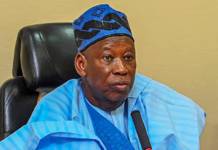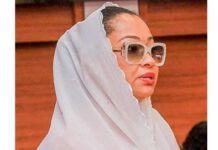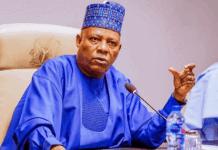For over 80 children of school age in Kolokolo community, the establishment of Kolokolo Primary School signifies the beginning of their learning journey. For the broader local community, it meant jobs, progress and development.
Mrs Osarogiagbon Isokpan, the Education Secretary of Ikpoba-Okha local government area, where Kolokolo is located mirrored the community’s excitement with the new school noting that it is “a welcome development in expanding quality basic education.”
“I noticed the need for a school in Kolokolo community on one of my visits to the community. I immediately notified the Edo State Universal Basic Education Board (Edo SUBEB) and today, Kolokolo school has over 80 pupils attending classes every day thanks to the progressive model”, Mrs Isokpan said with a smile.
A 2022 UNESCO report notes that approximately 20 million Nigerian children are not enrolled in school, accounting for about 20 per cent of Nigeria’s entire population. Even worse, over 70% of children in Nigerian schools suffer from learning poverty – the inability to read and understand a simple text by age 10.
However, children in Edo state have better leverage compared to their counterparts thanks to the EdoBEST reform programme which started in 2018. Over 600,000 children have benefitted from the programme over the past five years, setting them on the right path to nurturing their foundational literacy and numeracy skills which are essential for lifelong learning.
Building Blocks of Literacy
In bridging the learning gap in schools and accelerating progress towards the achievement of Sustainable Development Goal 4 (SDG4) on education and lifelong learning, Edo SUBEB introduced the Cross-grade Ability Grouping. A revolutionary approach to improving literacy and numeracy skills, all public primary schools under EdoBEST adopted the method. The result was tremendous.
Chioma Okoh, a primary 5 pupil could be considered a poster child of the outcome. Chioma’s enrollment coincided with the period of cross-grade ability grouping. The initiative saw pupils sorted into groups based on their results from a diagnostic test. An intervention to bring all of them to speed followed.
“Before enrolling Chioma in an EdoBEST school, she could neither read nor write. I took the decision to enrol her in an EdoBEST school as I had heard of how they help children with their literacy skills”, Mrs Ngozi Okoh, Chioma’s guardian noted.
The impact of the programme on public primary education was clear one year after implementation as children who had difficulty reading could now do so unaided. Now, an average Primary 2 EdoBEST pupil is reading at the same fluency level as an average non-EdoBEST Primary 5 pupil.
“The first thing I noticed about Chioma was that on her own she would pick up the EdoBEST books and start reading aloud without much supervision. She was able to read like never before and her numeracy skills also improved tremendously. I said to myself, this thing we are doing is working,” Mrs Okoh said.
Chioma is just one of the thousands of children whose literacy skills were improved through the introduction of the cross-grade ability grouping initiative. Similarly, the initiative was introduced into the progressive school model last year.
Mrs. Osato Omoba, Headteacher of Walden Iboro School, also notes that the initiative accelerated her pupils’ learning skills by helping them develop an interest in learning despite the initial period of hesitance from both pupils and their parents. (Many children were grouped with younger children during this period.)
“The use of charts and sounds has been effective in improving their literacy skills. The cross-grade ability grouping really helped them improve reading and numeracy skills and the evidence is everywhere in the school”, Mrs Omoba says.
Sustaining education systems
Literacy is central to building more inclusive, peaceful, just, and sustainable societies. For a state with a history of an exodus of young people, Governor Godwin Obaseki was determined to change the tide through education. “It is the right of every child to receive quality education. Denying anyone access is not just an abuse of their rights — it also reveals a catastrophic failure which must be tackled, not neglected,” he said in an article published in the Financial Times in 2021.
To match action with words, the governor introduced the EdoBEST programme first in public primary schools, thereafter extending the programme to junior secondary schools and progressive schools (schools located in the rural, hard-to-reach and riverine areas in the state).
To further improve learning outcomes, the state government distributed over 1.5 million learning materials to primary and junior secondary schools through the Edo State Universal Basic Education Board (Edo SUBEB) last April.
Speaking at the flag-off ceremony for the book distribution, the governor noted that “books are a direct attack to learning poverty which children face” noting that more will be done to solidify the learning gains achieved with EdoBEST.
By ensuring that there are learning materials in schools, active learning is facilitated and teacher effectiveness is enhanced, ensuring the delivery of superior literacy and numeracy skills among children.
As the global community marks International Literacy Day, Edo is leading light in Nigeria as a state that has taken bold and brave steps to make every primary school child a literacy champion.

























